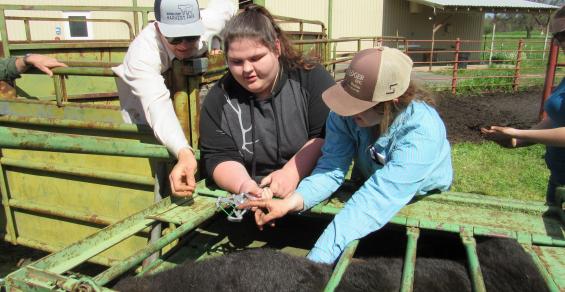Cattle industry leader says producers are remaining vigilant as IP13 suffers apparent setback.
An Oregon cattle industry leader says producers are remaining vigilant in their effort to protect animal agriculture despite an apparent setback for activists proposing an effective ban on certain animal husbandry practices.
Organizers of Initiative Petition 13, which would remove farmer exemptions from existing laws barring animal cruelty, have refocused their efforts toward making the ballot in 2024 after failing to gather enough signatures for November’s election.
David Michelson, the Portland animal welfare activist behind the initiative, wrote on the campaign website that a new petition has been filed with Oregon Secretary of State Shemia Fagan and has been given the number IP3. The group is now seeking an initial 1,000 signatures.
“Once we get those first 1,000 signatures, the Attorney General will begin the process of creating an official ballot title and we can then receive approval to start gathering the remaining signatures to get on the ballot,” Michelson wrote. He did not immediately return an email from Farm Progress seeking comment.
Related: Oregon initiative would ban animal slaughter, breeding
Despite IP13’s apparent failure, a coalition of farm groups that were fighting the initiative is still taking the effort seriously and working to educate the public about ranching practices, said Tammy Dennee, executive director of the Oregon Cattlemen’s Association.
“We remain highly concerned,” she told Farm Progress, “and we’re going to remain vigilant in our work with a coalition across natural resource sectors to help inform the public so the public can be aware and have information that is accurate.”
The proposed Abuse, Neglect and Assault Exemption Modification and Improvement Act would delete all references to “good animal husbandry” from state statute and only allow an animal to be injured in cases of a human’s self-defense. A veterinarian’s spaying and neutering of household pets would still be exempt.
The proposal would specifically target practices used for “(b)reeding domestic, livestock, and equine animals,” according to the text of the initiative. It would also create a new felony category for teachers, advisors and parents who violate the new law in the presence of children, its critics argue.
IP13 and a similar measure in Colorado gained national attention last year, prompting pro-ranching rallies in dozens of communities and proclamations by Nebraska Gov. Pete Ricketts and Iowa Gov. Kim Reynolds promoting meat. The Colorado Supreme Court nixed Initiative 16 last summer on the grounds that it violated a state statute that initiatives only address a single subject.
Oregon Attorney General Ellen Rosenblum revised IP13’s ballot language while letting its petition drive go forward, but “it does not appear that we will gather enough (signatures) for 2022” to meet a summer deadline, a campaign representative told the La Grande (Ore.) Observer. The initiative needed 112,000 signatures.
Dennee suspects the pandemic may have dampened the petition drive, as people may have been more hesitant to volunteer or linger around others to sign petitions.
Related: Court ruling puts Oregon’s IP13 in new light
The OCA, the state Farm Bureau and other groups formed a coalition called Oregonians for Animal Care, which set up a website to explain ranching practices and has been doing media outreach, Dennee said. The coalition includes hunting and fishing interests, which would be affected by the measure.
Oregon’s roughly 12,000 beef producers raise about 1.3 million head of cattle in the state’s 36 counties, according to the OCA. In addition, many Northern California ranchers truck thousands of head of cattle into Oregon for summer pasture.




